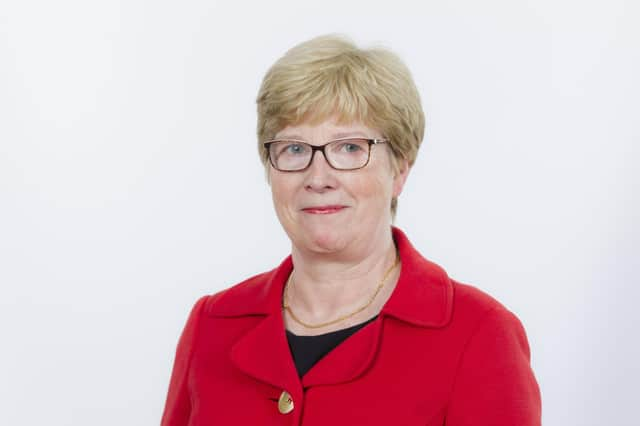The hospitality sector is now at breaking point - Audrey Ferrie


Behind the scenes, legions of hospitality workers also have a fight on their hands to maintain Scotland’s hard earned reputation for offering a warm welcome and outstanding hospitality as the university town welcomes a record-breaking 290,000 fans.
The hospitality sector - and particularly the licensed trade - is at breaking point, as underlined with a recent Scottish Tourism Alliance survey which revealed that 20% (45,000) of Scotland’s estimated 230,000 tourism jobs remain unfilled.
Advertisement
Hide AdAdvertisement
Hide AdThe industry body, UK Hospitality, recently warned operators were facing a 95% hike in energy charges, 19% in labour costs and a 17% and 14% rise in food and drink prices, which along with changes to VAT would cause havoc in consumer confidence.
Cafes, restaurants, pubs and hotels, have been forced to close or in many cases reluctantly reduce operating hours because of staff shortages. Last week in peak-summer tourist season, a colleague was told the kitchen at an iconic Edinburgh bar was closed because there was “no staff” and thereafter found it impossible to find anywhere offering dinner after 9pm in Cockburn Street and the Royal Mile.
Staff who continue to work contend with longer shift patterns and potentially suffer burn-out, and there is little time to train new entrants to the high standards required if Scotland is to maintain its reputation as a world leader in hospitality.
The cause is – and was – in plain sight. A Brexitdus of international workers on which the sector relies on was predicted and indeed materialised, as core staff upped pots and pans, cocktail shakers and aprons, to find work in more welcoming and friendly countries.
The Covid-19 pandemic forced the long closure of virtually all premises, with thousands of workers moving into other sectors when business reopened or choosing not to return because hospitality is not viewed as a particularly attractive or secure career option.
Another factor is at play following May’s local council elections, which resulted in licensing boards up and down the country changing members and political hue. Unfortunately, there have already been some examples of boards trying to impose conditions on licences which are arguably ultra vires, but hopefully this is a short-lived phenomenon and things will settle down.
Fresh ideas and innovative thinking would be welcomed from newly elected (and veteran) licensing board members who have an important role to play in supporting the hospitality sector, which is central to helping reinvigorate Covid-blighted towns and cities across Scotland.
Never before has there been such a need for a collaborative streamlined approach which brings together decision makers in licensing, planning and transport - often all three are needed to secure permission for operators to provide a basic service.
Advertisement
Hide AdAdvertisement
Hide AdOur licensing representatives need to call time on the drawn-out processes which make obtaining all the necessary approvals to provide services more difficult than a hole in one at St Andrews.
Audrey Ferrie, Consultant and licensing specialist at Pinsent Masons
Comments
Want to join the conversation? Please or to comment on this article.